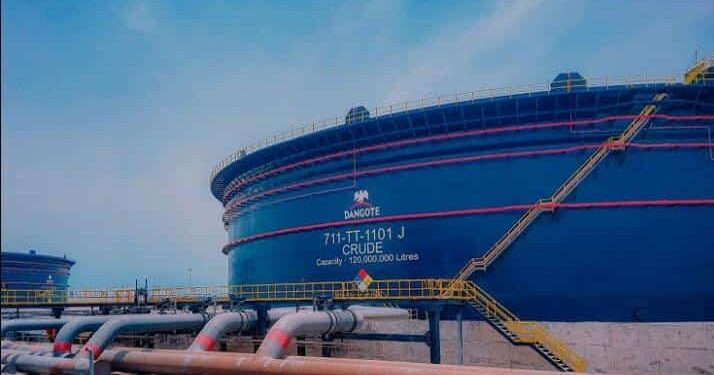Dangote Refinery has issued a statement addressing recent claims made by the Independent Petroleum Marketers Association of Nigeria (IPMAN), the Petroleum Products Retail Outlets Association of Nigeria (PETROAN), and other industry groups regarding pricing and product quality.
In a press briefing, Anthony Chiejina, the Group Chief Branding and Communications Officer, emphasized that the refinery has refrained from engaging in media disputes but felt compelled to clarify the situation due to the spread of misinformation. He asserted that both IPMAN and PETROAN have falsely claimed they can import Premium Motor Spirit (PMS) at lower prices than those set by the Dangote Refinery.
Chiejina stated that the refinery benchmarks its prices against international standards, maintaining competitive pricing for its high-quality products. He warned that any entities claiming to offer cheaper PMS likely deal in substandard products, endangering public health and the longevity of vehicles across Nigeria. He criticized the National Midstream and Downstream Petroleum Regulatory Authority (NMDPRA) for lacking adequate laboratory facilities to detect such inferior imports.
Following the deregulation of the petroleum sector, the Nigerian National Petroleum Corporation (NNPC) established a pricing framework that saw PMS sold to domestic marketers at N971 per litre for shipments and N990 for trucks. The Dangote Refinery has positioned itself even more competitively, pricing its products at N960 per litre for shipments while keeping truck prices at N990.
Chiejina underscored the refinery’s commitment to selling at these prices despite uncertainties in the exchange rates for crude oil purchases. He also revealed concerns about an international trading firm that has begun blending substandard products at a depot near the Dangote Refinery, a move that poses a threat to the domestic refining sector.
The Dangote Refinery urges the public to ignore the disinformation circulated by those who prefer to undermine local industries and support import dependency, ultimately calling for a unified effort to protect and promote Nigeria’s domestic refining capabilities.





















































